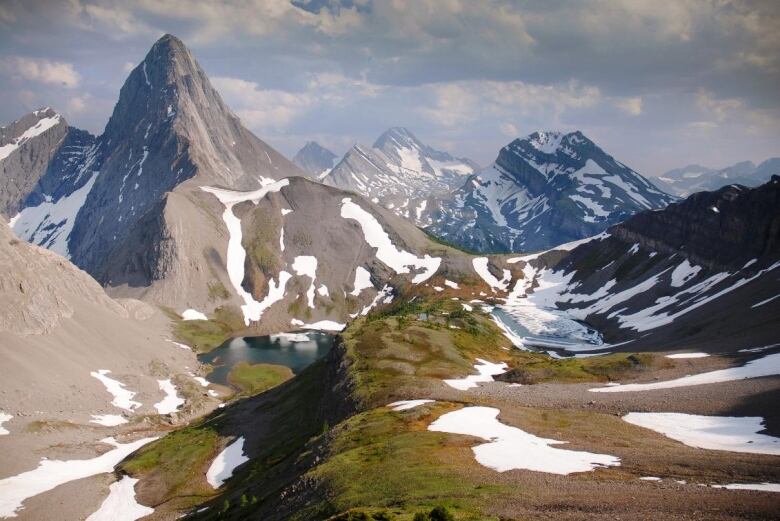OPINION | There's a better way than user fees to pay for Alberta parks
Parks and protected areas worth far more than simple lines on budget ledger can state

This column is an opinion from Stephen Legault, a strategy and communications consultant based in Canmore, Alta.

Albertans are being asked how they feel about paying user fees for provincial parks and recreation areas.
On the face of it, it is hard during such perilous economic times to argue against people paying a modest fee to access protected areas, trailheads and picnic spots; the province could use the money, and who knows, it might even be spent on maintenance and repairs to improve visitor experiences!
Albertans and our guests, however, already pay for our parks and protected areas many times over. Parks are a net economic benefit for the communities that are near them, and for the overall bottom line of Alberta.
The recent announcement of a capital investment of $43 million to improve infrastructure in parks does nothing to shore up diminishing operating budgets. When this money has been spent, our parks will have nicer washrooms, but less staff to clean them.
Alberta Parks had an operating budget of $86.1 million in 2018-2019. That number was cut by more than $6 million in the UCP's first budget and another $7 million this year. Revenues from existing services in Alberta parks account for $33.4 million.
If you're thinking those numbers don't add up, you're right, of course.
The economics of parks
They don't if you are looking at parks the way Alberta's UCP government does: as a simple expense-revenue equation that only considers the direct income generated by camping fees and licensing agreements with tourism operators. But that's the wrong way to look at the economics of protected areas.
Headwaters Economics, based in Bozeman, Mont., has been pioneering a full-cost accounting methodology of looking at the economic value of protected areas, and what they have found comes as no surprise to those of us deeply committed to protecting nature, and preserving the benefits of parks for our communities.
Headwaters has demonstrated that non-metro counties that have upward of 30 per cent of their land base protected experienced a 345 per cent increase in jobs between 1970 and 2010. By comparison, counties that have less than 10 per cent of their lands protected saw their job numbers increase by just 83 per cent during the same period.

The dramatic difference in job creation was fuelled not just by tourism, but by in-migration of people to areas with a large protected land base.
Headwaters Economics concluded that in 2010, western counties with 100,000 acres of federally protected lands had per capita incomes $4,360 higher than similar counties with no protected lands. Protected areas provide assurance to employers and entrepreneurs that the amenities that attract them and their employees to a region would be preserved for their future enjoyment.
According to one Headwaters report, "one of the reasons for this positive relationship may be that in today's economy, a premium is placed on the ability of communities to attract talented workers, and the environmental and recreational amenities provided by national parks and other protected lands serve to attract and retain talented people who earn above average wages, and have above average wealth, such as investment income."
For a province desperate to diversify its economy, this is critical. Today's workforce is mobile, tech-savvy and focused on quality of life, as well as a paycheque.
Privatization and budget cuts
Instead, the UCP government is privatizing up to a quarter of the recreation sites in its network and closing another 20. Budgets for cross-country ski trail grooming have been cut to zero, and trail crews and park naturalists have been laid off.
No new parks are planned, and existing parks, such as southern Alberta's Castle Wildland, are being threatened by insidious rollbacks to their hard won protection.
A 2011 report done for Alberta Parks shows that tourism expenditures in Kananaskis Country, west of Calgary, resulted in over $200 million in real economic impact for the province in 2011 alone. More than 3,000 full-time jobs are directly supported by these parks and recreation sites, and over $35 million in taxes were paid to the Government of Alberta by businesses that are associated with the region. That was in just one year and it was a decade ago!
This is to say nothing of the non-monetary benefits of our protected areas to our health, emotional well-being, sense of pride and provincial identity.
Parks and protected areas are worth far more to our communities and our province than simple lines on a budget ledger can state. For a government that prides itself on its fiscally conservative bottom line, this should be more than enough reason for the creation of more protected areas and the safeguarding of our existing parks.
This column is an opinion. For more information about our commentary section, please read our FAQ.

